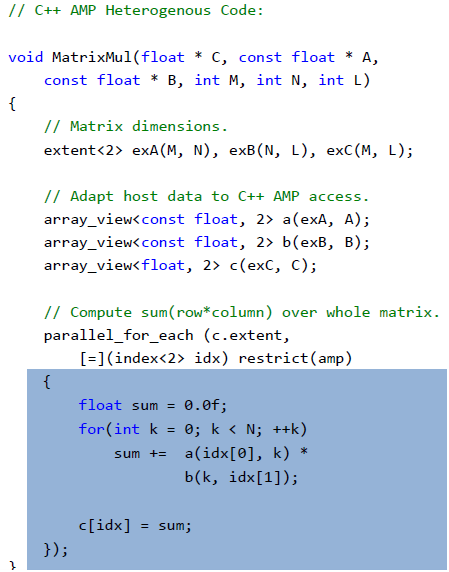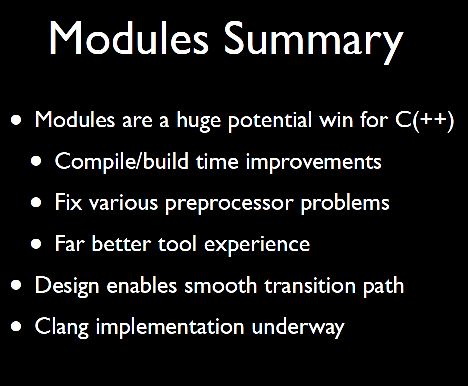Shevlin Park: A C++ AMP Implementation in Clang/LLVM Using OpenCL -- Dillon Sharlet
 At the November 2012 LLVM Developers' Meeting, Dillon Sharlet of Intel gave a presentation on Shevlin Park, a prototype implementation of C++ AMP in Clang/LLVM using OpenCL. In this talk Dillon briefly discusses C++ AMP in comparison to OpenCL, details the implementation and shows the results of performance analysis on the prototype implementation.
At the November 2012 LLVM Developers' Meeting, Dillon Sharlet of Intel gave a presentation on Shevlin Park, a prototype implementation of C++ AMP in Clang/LLVM using OpenCL. In this talk Dillon briefly discusses C++ AMP in comparison to OpenCL, details the implementation and shows the results of performance analysis on the prototype implementation.
Shevlin Park: A C++ AMP implementation in Clang/LLVM using OpenCL (MP4 video) (PDF slides)
Dillon Sharlet - Intel
We describe “Shevlin Park,” a prototype implementation of Microsoft’s C++ AMP built on Clang, LLVM, and OpenCL.
We fully describe Shevlin Park’s implementation including how Clang/LLVM can be augmented to easily accommodate C++ AMP programming constructs, how C++ AMP computation can be expressed as OpenCL compute kernels, and finally how the C++ AMP runtime library can be easily implemented on an OpenCL runtime.
Using several benchmarks, we evaluate Shevlin Park’s performance, Microsoft’s DirectX based C++ AMP, and also conventional OpenCL.



